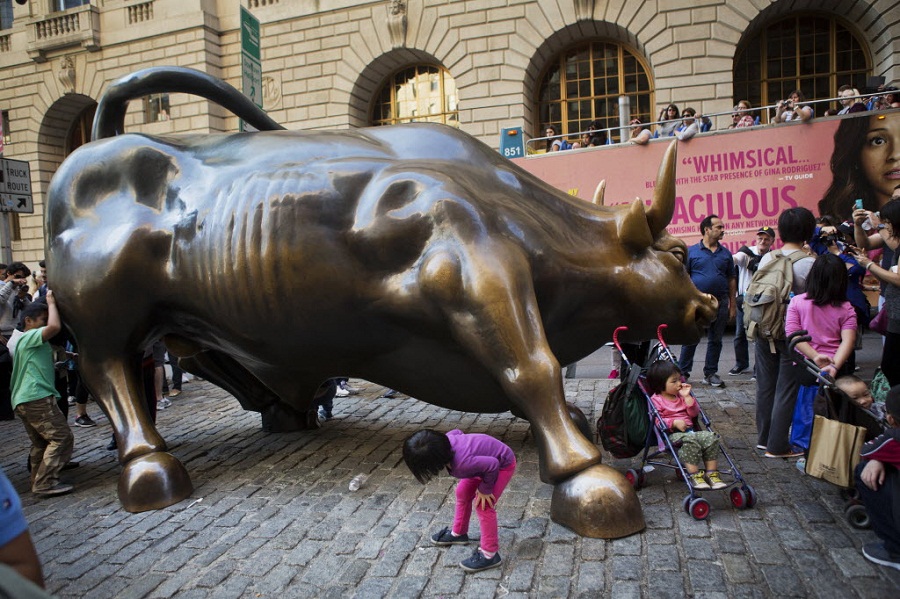U.S. stocks rose as trading resumed after a holiday, catching up with gains in global equities Monday while weakness in crude oil tempered an early advance.
Banks gained for a second day, with Citigroup Inc. and Bank of America Corp. up more than 2.8%. Retailers, one of last week's bright spots, added to their longest rally in three months with Amazon.com Inc. and Home Depot Inc. rising at least 1.6%. ADT Corp. soared 50% after agreeing to be acquired by
Apollo Global Management LLC for about $6.9 billion. Community Health Systems plunged 29% after reporting an unexpected quarterly loss.
The Standard & Poor's 500 Index increased 0.9% to 1,881.67 at 10:35 a.m. in New York, after its biggest rally in two weeks on Friday. The Dow Jones Industrial Average climbed 106.59 points, or 0.7%, to 16,080.43, trimming an earlier 172-point gain. The Nasdaq Composite Index added 1.5%.
“What we're seeing here are the U.S. markets trying to catch up with the rally that the rest of the world saw yesterday,” said Peter Jankovskis, who helps oversee $1.9 billion as co-chief investment officer of Lisle, Illinois-based OakBrook Investments. “Oil is still important, but I think the larger focus has now switched to financial stocks. People turned their focus on the impact of negative rates spreading around the world, and the impact that might have on banks' profits.”
West Texas Intermediate crude futures fell 1.4%, after fluctuating between gains and losses. The world's two largest crude producers, Saudi Arabia and Russia, said they would hold output at January levels. Oil struggled to rally amid speculation that the production freeze would do little to reduce the glut of crude.
http://www.investmentnews.com/wp-content/uploads/assets/graphics src="/wp-content/uploads2016/02/CI103914216.JPG"
The S&P 500 on Friday capped a second consecutive weekly decline amid increased concern that central-bank efforts to support growth worldwide are losing potency. Bank shares have been rattled by falling Treasury yields and concerns that the collapse in oil prices could increase credit risk. The benchmark is down more than 12% from an all-time high set in May, while a measure of volatility is up about 25% this month, on track for the most since August.
Investors lowered equity holdings, cutting banks at the fastest rate in almost 10 years, while raising cash to 5.6% of their portfolios, the highest level since November 2001, according to Bank of America Corp.'s February survey of global fund managers. The cash level represents an “unambiguous” buy signal, strategists led by Michael Hartnett, wrote in a note Tuesday.
Investors are also monitoring economic reports, after a tumultuous start to the year that pushed U.S. equities as much as 14% below a May record. Data today showed manufacturing in the New York region declined at a slower pace this month, though it was worse than forecasts by economists surveyed by Bloomberg. A separate report indicated confidence among U.S. homebuilders dropped to a nine-month low.
Also due this week are January housing starts, gauges on producer and consumer prices, industrial production and minutes from the Federal Reserve's last meeting.
The earnings season, more than three-quarters through, hasn't provided much relief for equities. Of the S&P 500 firms that have reported so far, about 75% have exceeded profit projections, while less than half have topped sales forecasts. Analysts estimate earnings at S&P 500 companies fell 4.5% in the fourth quarter, better than Jan. 15 predictions for a 7% slump.







